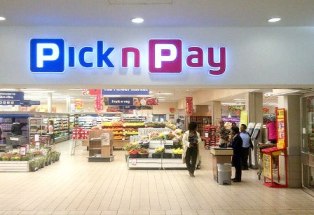Pick n Pay lost R1.7bn in sales due to unrest and alcohol restrictions
Severe trading disruptions due to unrest in KwaZulu-Natal and parts of Gauteng in July, as well as restrictions on liquor sales, resulted in Pick n Pay losing an estimated R1.7 billion in sales in the second quarter of its financial year, it said in an earnings update.

Carin Smith | Fin24
Interim results for the period ended 29 August 2021. It is due to be published on 20 October 2021.
Over the first half of its financial year, group turnover increased 4.1% year-on-year to R46 billion and its estimated normalised sales growth, excluding the impact of disruptions, is 8% for the period. The majority of losses in respect of both material damage and business interruption are expected to be recovered under the group's insurance.
Although it is not yet possible to quantify the full impact of business interruption on sales and earnings due to the unrest, Pick n Pay estimates it at approximately R930 million. More than 200 Pick n Pay and Boxer stores were damaged by looting and destruction and many stores required extensive restoration before reopening. Pick n Pay's two largest distribution centres in KwaZulu-Natal were looted of all stock and suffered considerable damage to infrastructure.
The group's liquor business lost a further 55 trading days the interim period as a result of the government's restriction of offsite alcohol sales in response to the Covid-19 pandemic. These restrictions resulted in an estimated R800 million of lost sales over the interim period.
Nevertheless, the group said its first-half earnings will demonstrate continuing benefits from its modernisation programme - including a more efficient supply chain, more cost-effective store and support office operations, and strong management of working capital and capital investment. Boxer performed well and progress is being made in growing Pick n Pay's omni-channel offer
News Category
- International retailers
- On the move
- Awards and achievements
- Legislation
- Wine and liquor
- Africa
- Going green
- Supplier news
- Research tools
- Retailer trading results
- Supply chain
- Innovation and technology
- Economic factors
- Crime and security
- Store Openings
- Marketing and Promotions
- Social Responsibility
- Brand Press Office
Related Articles

Empowering South African households through gro...

SPAR shares practical tips to beat food inflation

South African motorists could be paying up to R...

Big VAT changes on the cards


